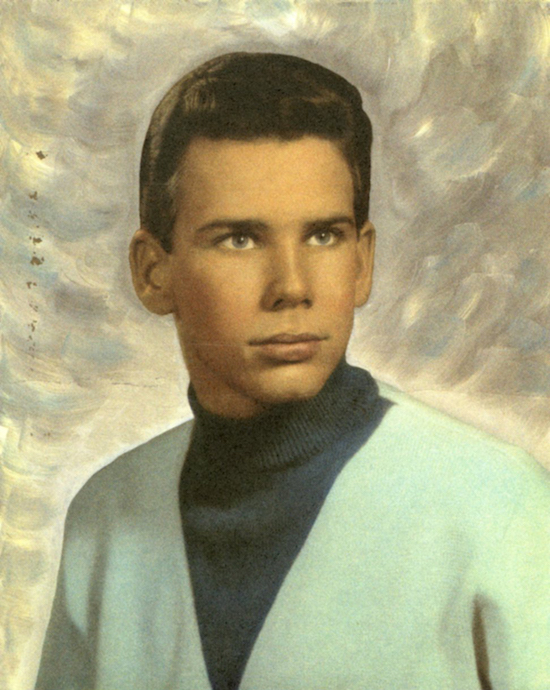For a good stretch during the late ’80s/early ’90s, the John Terlesky-fronted, garage-rocking Original Sins were poised to be one of indie rock’s next big things. Despite a string of excellent LPs, that never happened for the pride of Bethlehem, Pa., who disbanded in 1999. Prior to the breakup, Terlesky started releasing more experimental records as Brother JT, and they, too, have been stellar. JT keeps his winning streak alive with the new Tornado Juice (Thrill Jockey), produced by Ray Ketchem (Luna, Okkervil River), who also manned the boards for 1996 Original Sins classic Bethlehem. The good Brother will be guest editing magnetmagazine.com all week, tornado juice not included.

JT: The ability of music to dictate or compliment mood might be its greatest asset. Just as the right soundtrack can enhance a movie, the right music for whatever context you find yourself in can deepen your experience or take you somewhere else entirely. It can even commiserate when the chips are down, like a drinking buddy who elbows you, sliding the bottle in your direction, muttering, “A little hair of the dog?”
When wallowing in some existential despair—you know, once or twice a month—I’ll pull out Stephen David Heitkotter‘s sole recorded effort, Heitkotter, and let it sop up my doldrums like a big, dirty sponge. Informally recorded in 1971 under somewhat mysterious circumstances, it was pressed into a few acetates that somehow survived the initial total indifference of the universe to become a highly regarded relic of DIY recording and out-rock sludge in the form of an official release as Black Orckid on the Now-Again label.
The first song I heard, “Fly Over The Moon,” is 13 minutes long, but despite its ‘luded-out pace, at no time did I get bored. Initially it would seem to be a misbegotten jam session by several messed-up individuals who can barely play their instruments. In fact, it’s not really ineptitude: Both guitarist and drummer have chops, but it’s the attitude of obliviousness driving their playing that makes this fascinating listening. No one is trying make a statement, least of all Heitkotter vocally; mush-mouthed and barely coherent, his words ooze out like pancake syrup on a cold day. They are just letting the langorous grooves pour out of their respective instruments with zero regard for convention or intention.
I was tempted several times to just stop listening, but something would come up—an incongruous drum rave-up, a synapse-short-circuiting guitar run—that made me want to hear more. The willful avoidance of standard rock moves carries through to all five tracks and pulls the curious listener in, like seeing something inexplicably mysterious and wanting to figure it out. But that’s not going to happen. The fog surrounding the intent of these recordings is impenetrable. It’s best to let it roll over you and just stop thinking all together.
Now you might listen to Black Orckid and say, “Jeez, my high-school buddies and I would get wasted and play stuff like this. It’s just pointless noodling. Collectors got a hold of it, and everyone thinks it’s brilliant, but the emperor’s got no clothes.” In response, I’d say, “Yes, I agree, this emperor is definitely naked. And he looks good that way.”






